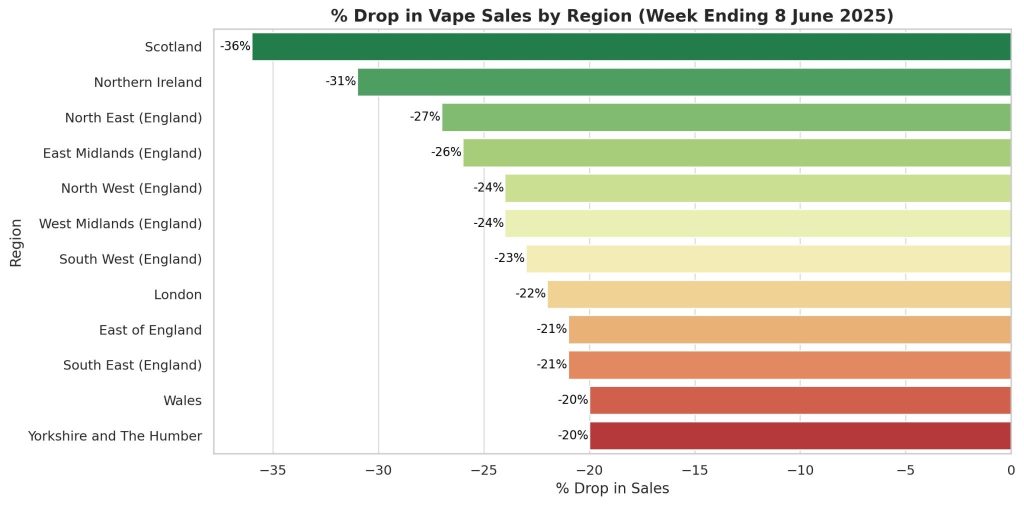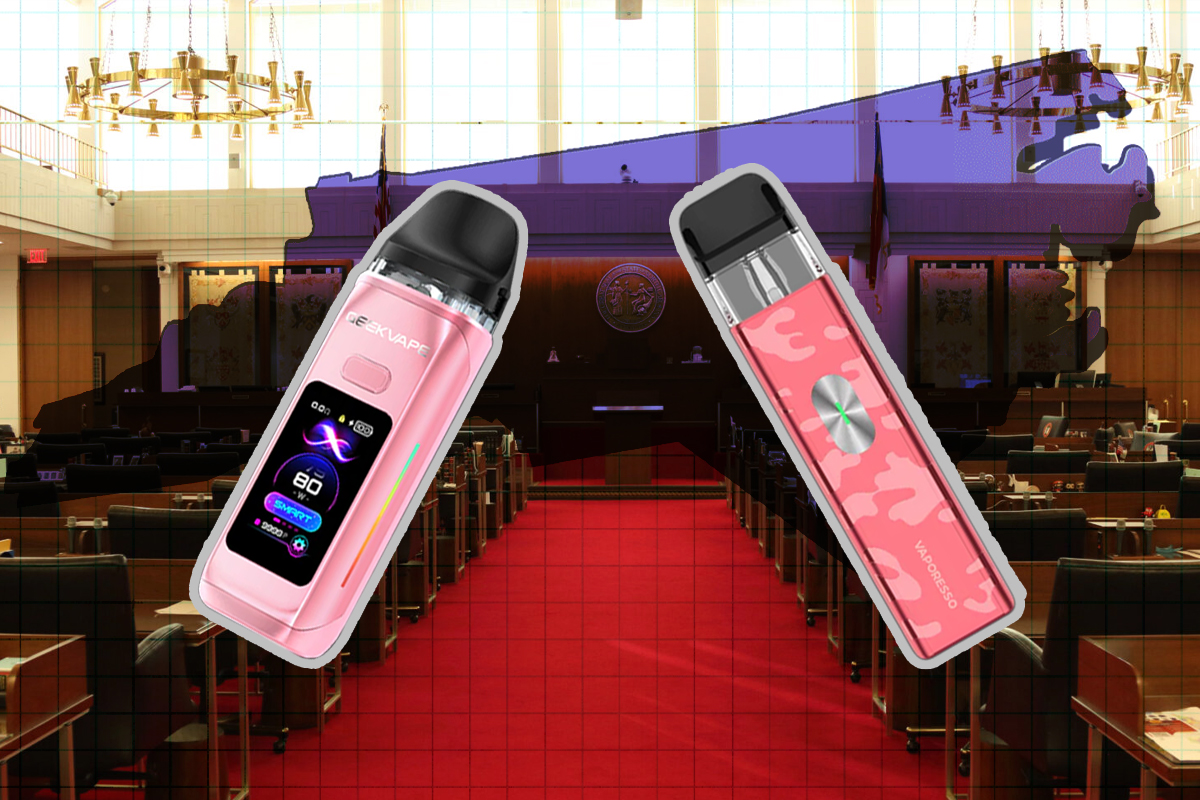Following the implementation of a nationwide ban on single-use Vapes in the UK since June 1st, reliable data from industry analysis firm Talysis reveals that sales losses across convenience stores reached approximately £5 million during the initial week (ending June 8th). This sharp drop demonstrates immediate economic impact and concurrently suggests continued unregulated trading within major retail channels.
Key Market Response Data:
Pre-ban Weekly Revenue: Roughly £23.5 million generated by single-use Vapes in convenience stores across Britain, prior to the ban.
Post-Ban Impact:
- National reduction hit at least 20%, with most regions observing significant decreases.
- Scotland felt the strongest impact — sales decreased by a remarkable 36% (nearly £8.5 million decline).
- North Ireland & Northeast England saw double-digit drops, falling 31% and 27% respectively.
But while banning the product led to major declines in official channels, Talysis uncovered concerning continuity:
- Unregulated Activity Persists: After nearly one week of enforcement, black market sales were still reporting substantial volumes — over £1M worth continued selling despite legal prohibition.
- Illegally Sold E-Juice Remains Stable:
- There are early, unsettling signs that this unlicensed activity isn’t being suppressed quickly.
- The price of contraband single-use e-cigarettes appeared largely consistent week-over-week in the immediate post-ban period.

Regional Breakdown:
The implementation created varied economic strain — a feature of the landscape already anticipated by many retailers last October when the ban materialized following months-long deliberation.
A table showing regional variation may be added here.
As reported yesterday, Talysis highlighted key geographic disparities within that initial sales week. The East Midlands registered minimal loss (less than 20%), while Southeast Wales saw among the smallest declines nationally — yet remains far more sensitive to such bans.
Deep Analysis:
This latest data shows a clear challenge for both enforcement and public health policy design in a complex consumer environment:
- Instant Economic Impact: Retailers face a tangible revenue decline, signaling that product dependency is strong.
- Unregulated Persistence: Despite legal barriers, illicit markets appear resilient early following implementation as consumers continue to seek products they need or want.







